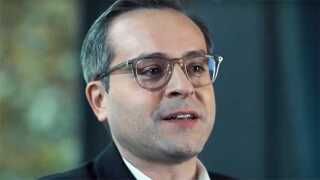Barbara Underwood (pictured), the chief law officer for the state of New York, is saying that the consultation by the Federal Communications Commission (FCC) was flawed because it was “corrupted by millions of fake comments – including as many as 9.53 million that stole the identities of real people”.
Reports say that her action is provoked by the finding that millions of comments for the FCC’s consultation used temporary or duplicate email addresses. Many used seven standard comments, repeated many times by different people. The FCC abolished net neutrality earlier this year.
Ryan Singel at Stanford University’s Center for Internet and Society in California is reporting (PDF here): “More than 22 million comments were filed to the FCC ahead of its December vote. Unfortunately, millions of these comments were fake, including ones that were deliberately filed using other people’s email addresses including those of Senators, journalists and dead people.”
Singel added: “These automated campaigns were apparently intended to disrupt the public comment process, and they successfully made any attempts by journalists, lawmakers or policy groups to analyze the comments next to impossible.”
The Stanford team has filtered out 800,000 comments that are clearly independent and has found that 99.7% of them were against the FCC’s plan to end net neutrality.
“We’ll get to the bottom of what happened,” said Underwood yesterday. In August she began separate legal action against the FCC, working with the attorneys general of 21 other states and the District of Columbia, along with a number of internet companies.
Jessica Rosenworcel, one of the two Democrats on the FCC, has come out in support of Underwood’s latest move. The consultation “was riddled with fraud: half a million comments from Russia, two million comments from individuals with stolen identities”, she said. “It’s time to figure out what really happened.”
The New York Times says that “many comments on net neutrality were falsely submitted under the names of real people, in what amounted to mass acts of virtual identity theft. Some comments used the name of dead people.”
A Washington DC think tank, Pew Research Center, says that 16,983 comments claimed to be from people named “Net Neutrality” and another 7,470 were from “The Internet”. The FCC used no email verification system, and 7,513 comments claimed to come from “example@example.com”. The Bloomberg news agency is reporting that 444,938 of the comments were from Russian email addresses, though it does not know whether they were from real Russian people or from bots.
The New York Times, which is also suing the FCC to obtain digital records that would help trace the source of the public comments, is saying that Underwood has subpoenaed a number of companies and groups, including Broadband for America, Century Strategies and MediaBridge, citing a “person with knowledge of the investigation”.
Broadband for America says on its website that its members include AT&T, CenturyLink, Charter, Comcast and Cox, plus a number of industry organisations, the CTIA, the NCTA, the Telecommunications Industry Association and USTelecom. Century Strategies is a political consultancy and MediaBridge is a conservative messaging firm, according to the New York Times.
Century Strategies, founded by Ralph Reed, the former director of the Christian Coalition, told the newspaper in a statement: “We have worked to encourage citizens to contact government officials to oppose government regulation of the internet. We have directed our partners and vendors to follow above-industry standards and protections, including requiring individuals to provide name, address, email and phone number to verify who they are. We perform extensive data validation to verify all names and addresses using public databases.”
Other organisations named as approached by Underwood include the Center for Individual Freedom, a group set up by a former pro-tobacco lobbyist, according to the New York Times, plus Vertical Strategies, Free Press and Fight for the Future.






